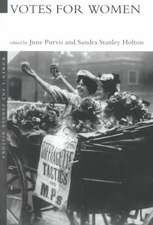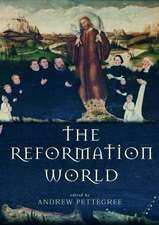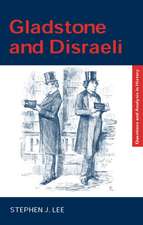The Victorian Reinvention of Race: New Racisms and the Problem of Grouping in the Human Sciences: Routledge Studies in Modern British History
Autor Edward Beasleyen Limba Engleză Hardback – 23 iun 2010
Scholars have linked this new racism to some very dodgy thinkers. The Victorian Reinvention of Race examines a more influential set of the era's writers and colonial officials, some French but most of them British. Attempting to do serious social analysis, these men oversimplified humanity into biologically-heritable, mentally and morally unequal, colour-based 'races'. Thinkers giving in to this racist temptation included Alexis de Tocqueville when he was writing on Algeria; Arthur de Gobineau (who influenced the Nazis); Walter Bagehot of The Economist; and Charles Darwin (whose Descent of Man was influenced by Bagehot). Victorians on Race also examines officials and thinkers (such as Tocqueville in Democracy in America, the Duke of Argyll, and Governor Gordon of Fiji) who exercised methodological care, doing the hard work of testing their categories against the evidence. They analyzed human groups without slipping into racial categorization. Author Edward Beasley examines the extent to which the Gobineau-Bagehot-Darwin way of thinking about race penetrated the minds of certain key colonial governors. He further explores the hardening of the rhetoric of race-prejudice in some quarters in England in the nineteenth century – the processes by which racism was first formed.
| Toate formatele și edițiile | Preț | Express |
|---|---|---|
| Paperback (1) | 484.85 lei 6-8 săpt. | |
| Taylor & Francis – 27 iul 2012 | 484.85 lei 6-8 săpt. | |
| Hardback (1) | 1006.77 lei 6-8 săpt. | |
| Taylor & Francis – 23 iun 2010 | 1006.77 lei 6-8 săpt. |
Din seria Routledge Studies in Modern British History
-
 Preț: 311.91 lei
Preț: 311.91 lei -
 Preț: 310.36 lei
Preț: 310.36 lei - 9%
 Preț: 934.90 lei
Preț: 934.90 lei -
 Preț: 311.41 lei
Preț: 311.41 lei - 9%
 Preț: 1490.08 lei
Preț: 1490.08 lei -
 Preț: 311.18 lei
Preț: 311.18 lei -
 Preț: 312.34 lei
Preț: 312.34 lei -
 Preț: 334.02 lei
Preț: 334.02 lei -
 Preț: 310.88 lei
Preț: 310.88 lei -
 Preț: 311.41 lei
Preț: 311.41 lei -
 Preț: 311.41 lei
Preț: 311.41 lei -
 Preț: 311.41 lei
Preț: 311.41 lei -
 Preț: 290.15 lei
Preț: 290.15 lei -
 Preț: 286.74 lei
Preț: 286.74 lei - 18%
 Preț: 1000.27 lei
Preț: 1000.27 lei - 18%
 Preț: 998.71 lei
Preț: 998.71 lei -
 Preț: 417.60 lei
Preț: 417.60 lei - 26%
 Preț: 762.39 lei
Preț: 762.39 lei -
 Preț: 484.85 lei
Preț: 484.85 lei -
 Preț: 436.14 lei
Preț: 436.14 lei -
 Preț: 371.64 lei
Preț: 371.64 lei - 18%
 Preț: 1000.27 lei
Preț: 1000.27 lei -
 Preț: 369.73 lei
Preț: 369.73 lei - 18%
 Preț: 1000.27 lei
Preț: 1000.27 lei -
 Preț: 383.93 lei
Preț: 383.93 lei - 18%
 Preț: 1000.27 lei
Preț: 1000.27 lei - 12%
 Preț: 299.52 lei
Preț: 299.52 lei - 18%
 Preț: 1002.32 lei
Preț: 1002.32 lei -
 Preț: 410.07 lei
Preț: 410.07 lei - 26%
 Preț: 875.55 lei
Preț: 875.55 lei - 18%
 Preț: 1008.65 lei
Preț: 1008.65 lei - 25%
 Preț: 823.63 lei
Preț: 823.63 lei -
 Preț: 384.48 lei
Preț: 384.48 lei - 26%
 Preț: 846.78 lei
Preț: 846.78 lei - 18%
 Preț: 1005.04 lei
Preț: 1005.04 lei - 25%
 Preț: 851.40 lei
Preț: 851.40 lei - 25%
 Preț: 771.17 lei
Preț: 771.17 lei - 25%
 Preț: 658.36 lei
Preț: 658.36 lei - 25%
 Preț: 653.49 lei
Preț: 653.49 lei - 18%
 Preț: 891.36 lei
Preț: 891.36 lei
Preț: 1006.77 lei
Preț vechi: 1227.78 lei
-18% Nou
Puncte Express: 1510
Preț estimativ în valută:
192.67€ • 199.04$ • 160.35£
192.67€ • 199.04$ • 160.35£
Carte tipărită la comandă
Livrare economică 26 martie-09 aprilie
Preluare comenzi: 021 569.72.76
Specificații
ISBN-13: 9780415881258
ISBN-10: 0415881250
Pagini: 258
Dimensiuni: 152 x 229 x 18 mm
Greutate: 0.48 kg
Ediția:1
Editura: Taylor & Francis
Colecția Routledge
Seria Routledge Studies in Modern British History
Locul publicării:Oxford, United Kingdom
ISBN-10: 0415881250
Pagini: 258
Dimensiuni: 152 x 229 x 18 mm
Greutate: 0.48 kg
Ediția:1
Editura: Taylor & Francis
Colecția Routledge
Seria Routledge Studies in Modern British History
Locul publicării:Oxford, United Kingdom
Public țintă
Postgraduate and UndergraduateCuprins
1. Introduction – Reinventing Racism 2. Tocqueville and Race 3. Gobineau, Bagehot's Precursor 4. The Common Sense of Walter Bagehot 5. Bagehot Rewrites Gobineau 6. Darwin and Race 7. Argyll, Race, and Degeneration 8. Frederick Weld and the Unnamed Neighbours 9. By Way of a Conclusion – Arthur Gordon
Recenzii
'Highly recommended. All levels/libraries.' – Choice
'Edward Beasley has written a compact, no-nonsense, and smart overview of the idea of "race" in Victorian England' – Vincent P. Pecora (University of Utah), The American Historical Review
'Beasley's basic position is that there is no such thing as species. Like races, any historical accounts of species were either bad science, or, worse, mischievous attempts to suborn science in such a way as to reinforce prejudices against groups of people who color and/or economic position had made them vulnerable.' - Mark Francis (University of Canterbury)
'Edward Beasley has written a compact, no-nonsense, and smart overview of the idea of "race" in Victorian England' – Vincent P. Pecora (University of Utah), The American Historical Review
'Beasley's basic position is that there is no such thing as species. Like races, any historical accounts of species were either bad science, or, worse, mischievous attempts to suborn science in such a way as to reinforce prejudices against groups of people who color and/or economic position had made them vulnerable.' - Mark Francis (University of Canterbury)
Descriere
Not until the early nineteenth century would polygenetic and racialist theories win many adherents. But by the middle of the nineteenth century in England, racial categories were imposed upon humanity. How the idea of 'race' gained popularity in England at that time is the central focus of The Victorian Reinvention of Race: New Racisms and the Problem of Grouping in the Human Sciences.












